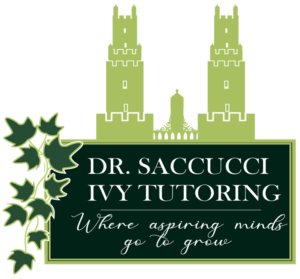The Personal Statement for Medical School
By. Dr. Saccucci, Hons. B.A., B.Ed., Masters, J.D. (CAN), J.D. (USA), Ph.D. (University of Toronto)

Tis the season for the submission of Medical School Applications in Canada and the USA. The Personal Statement is an important component of these applications. Medical School applicants should become familiar with the overall structure of the Personal Statement. They should include introductory sentences, and the epiphany, life or mentorship experience which compelled them to their decision to study medicine. Additionally, they should include experiences which highlight, without telling, their achievements, characteristics and activities which render them a great fit for the field of medicine. Of course, medical school candidates should include “insider information”, i.e., information about the specific Medical School to which they are applying, facts which go over and above general information available on the school’s website. Candidates should explain why the school is a great fit for them, and conversely, why they are a great fit for the school. Students often forget to explain the ladder: what do they have to offer the Medical School? Obviously, the final paragraph is the conclusion, which should be extremely pithy and memorable.
In terms of structuring the paragraphs, bear in mind that each paragraph should identity the attribute the student is attempting to display, for instance, empathy. In fact, I would recommend including a sub-title for each paragraph, identifying the attribute under discussion. Students should explain the experience which illustrates the attribute in a detailed, descriptive and humble manner. Nothing is more off putting than an arrogant tone. Finally, students should include the insights they gleaned from the personal experience. The tone and voice are essential elements: candidates should avoid sounding didactic, formalistic and contrived. Write in your own voice, and not someone else'. Authenticity is key. I’ve read a myriad of Personal Statements which come across as an academic thesis, rather than a story about the candidate. Ask yourself: what is my story? How did I arrive to this place in my life? Who am I?
Let us imagine we are trying to showcase the quality of empathy. An illustration of this quality may be as follows: When I saw the transport truck snaking across the highway and then maniacally crossing the median, I thought, ‘Wow, this is how I die?” The transport truck hit me head-on. Later, a priest gave me my last rites. After all, no one survives this kind of accident…. Yet, I did. Thanks to gifted doctors, I didn’t die that day. I did spend a year in a wheelchair. I did have to relearn how to walk again. I did suffer permanent, serious, and life-altering injuries. I also suffered psychologically and emotionally because people ignored me, as if I didn’t exist. I know they just felt uncomfortable around me; however, I would have felt better if they simply asked me, “what happened to you?”
My suffering turned out to be a good teacher because I learned empathy for people in pain, people who are suffering. The first time I saw a man in a wheelchair after my recovery, I went up to him and talked to him. I didn’t ignore him. I listened to him. We are friends to this day, and I learn more from him than he does from me. I want to channel that empathy within the field of medicine.
In conclusion, Personal Statements should read like an inspiring story, something authentic and memorable. Write in your own voice so that your tone is authentic and original. End with a pithy and impactful closing. An example would be, “Both my parents are medical doctors, and so, I know the nitty gritty reality: the sleepless nights, the stress, the non-compliant patients, the pain, suffering and death, and worst of all, children who are abused by their parents – and yet, here I am, writing my Personal Statement, and expressing my deep desire to join this honorable profession. “
